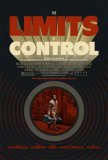Limits of Control, The (Spain, 2009)
April 28, 2009
The Limits of Control is a modern fable set within the approximation of a thriller. The slow, repetitious nature of the film, as well as the lack of a strong narrative, limits the level of suspense writer/director Jim Jarmusch is capable of generating, but there is nevertheless an almost hypnotic compulsion to keep watching and find out how everything ends. The overtly political resolution, which is startling in its lack of complexity and insight, not only fails to satisfy but leaves a bitter aftertaste. Many viewers will feel cheated that, after handing Jarmusch two hours of their lives, there is too meager a return on their investment of time.
The minimal storyline concerns an unnamed hit man (Issach De Bankolé) who spends most of the film moving from location to location throughout Spain, collecting the information and equipment he requires to complete his latest assignment, the assassination of an American corporate bigwig (Bill Murray, who is tellingly credited as "The American"). He meets most of his contacts in cafes, although one woman (Paz de la Huerta) spends a few days naked in hotel room and another (Youki Kudoh) dines with him on a train.
As the movie develops, it becomes clear that The Limits of Control is intended to be seen as a parable. From a strictly logical perspective, it's preposterous. The main character is a cipher; there's nothing there. He has no past or future and seemingly exists only in the present. He rarely speaks, although his eyes observe everything. His lone seeming vice is his preference for two cups of espresso every time he sits at a café table. He does not approve of sex (at least when he's working), guns, or mobile phones. He is fastidious in the extreme. But behind the blank mask of his face, there is nothing.
Ultimately, The Limits of Control is about art, music, literature, cinema, science, sex, and hallucinations banding together to provide the instruments by which the evil of soulless American capitalism can be destroyed. Thus, each of the characters who presents the hit man with a piece to the puzzle by which he can succeed represents one of these "artistic" elements. The film's quixotic approach is in part explained by the individual played by Tilda Swinton, who remarks on the connection between movies and dreams. Clues are littered throughout The Limits of Control that what we're seeing may in fact not be any form of "reality" but a dream or fantasy. The film does not end with a sudden revelation of this nature, but there is evidence to support such an interpretation.
The Limits of Control finds both strength and weakness through repetition. Nearly every transaction in which the hit man is involved follows the same pattern. He meets a person, they share the "secret" greeting ("You don't speak Spanish, do you?") , they exchange match boxes (which frequently contain coded messages), the newcomer philosophizes a little about art, music, etc., then the encounter ends. This happens about seven times with limited variation. However, while the degree of repetition can lead to frustration, it also lies at the core of the movie's almost mesmerizing influence. Knowing the structure of these meetings, we are fascinated by the specifics of how they occur and are able to focus on the differences that mark each from the others. Movies often discourage keen and careful observation; the opposite is true of The Limits of Control, which courts it.
Jarmusch is not mainstream, nor has he ever pretended to be, and there's nothing about The Limits of Control to change that. (Arguably, his most accessible films to date are Ghost Dog and Broken Flowers, and The Limits of Control is more obtuse than either.) Yet, as much as the proceedings have the capacity to fascinate, the ending, which offers an overly simplistic (and, some might argue, anti-American) moral, is a significant misstep. If only the world was so simple: art=good, commerce=bad. What is new, interesting, or surprising about that? At a time when the United States is shouldering the lion's share of the blame (some of which is deserved) for the global economic crisis, there is little doubt that this message will be popular abroad, but it is shallow and hollow, and erroneously reduces a complex equation into something insultingly naive.
For those who prefer substance over style, The Limits of Control has little to offer beyond the tedium of a half-baked storyline with undeveloped characters. (Although De Bankolé's performance is forceful in its implacability; he never cracks a smile.) For those who view cinema as something akin to Swinton's dreamlike definition, the movie does indeed establish a state of reverie within which it spins a web, but the strands are fragile and collapse once the main thread is pulled. While The Limits of Control offers some picturesque photography and grist for thought, it is ultimately too much like The Emperor's New Clothes to warrant anything approaching enthusiasm. The message is banal and the means by which it is presented reeks of artifice and pretention.
Limits of Control, The (Spain, 2009)
Cast: Isaach De Bankolé, Tilda Swinton, John Hurt, Gael Garcia Bernal, Paz de la Huerta, Youki Kudoh, Hiam Abbas, Bill Murray
Screenplay: Jim Jarmusch
Cinematography: Christopher Doyle
Music:
U.S. Distributor: Focus Features
U.S. Release Date: 2009-05-01
MPAA Rating: "R" (Nudity, Violence)
Genre: THRILLER
Subtitles: Some English subtitled Spanish
Theatrical Aspect Ratio: 1.85:1
- Shaft (2019)
- (There are no more better movies of Isaach De Bankolé)
- Manderlay (1969)
- Ghost Dog (2000)
- (There are no more worst movies of Isaach De Bankolé)
Comments